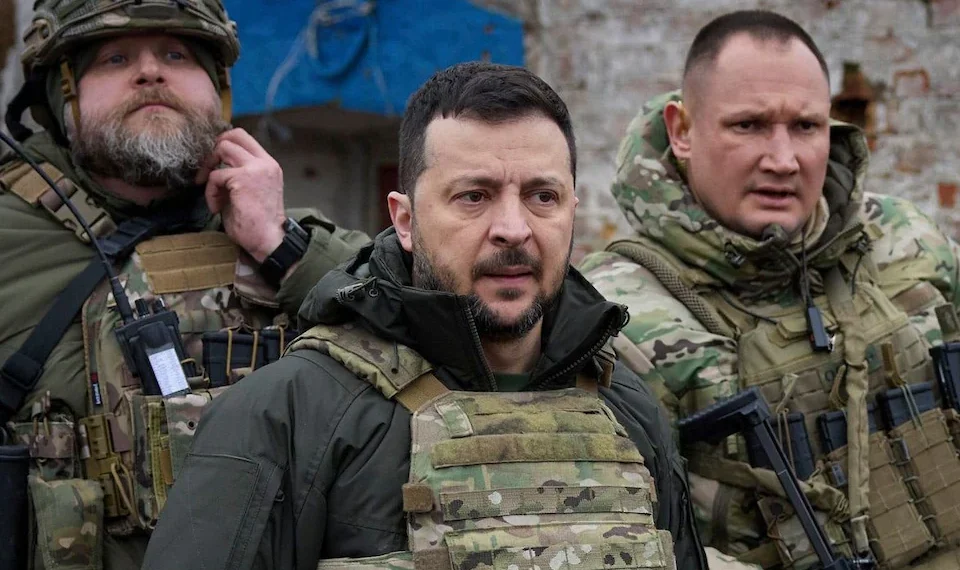Ukrainian President Volodymyr Zelensky has defended recent military strikes on the Russian Druzhba oil pipeline, describing them as a form of “sanctions” against European Union countries that continue to import Russian oil despite the ongoing war in Ukraine. The comments come after a series of Ukrainian drone and sabotage attacks disrupted oil supplies to Hungary and Slovakia—both of which still receive Russian crude via the pipeline.
In an interview, Zelensky framed the attacks not as aggressive acts against EU partners, but as legitimate pressure on nations that are “helping to finance” Russia’s war effort. “If some countries still think they can keep buying Russian oil, they should feel the consequences,” he said. He also noted that U.S. President Donald Trump had expressed dissatisfaction with EU nations, “including Hungary and Slovakia,” for continuing to rely on Russian energy.
Kyiv’s Target: The Druzhba Pipeline
Ukraine has repeatedly targeted sections of the Druzhba pipeline—a vital energy artery built during the Soviet era that transports Russian crude to Central Europe. In August 2025 alone, Ukrainian drone strikes hit critical pumping stations and junctions in Russia’s Bryansk and Tambov regions, forcing temporary shutdowns of the pipeline’s southern branch.
These strikes halted oil flows to Hungary and Slovakia multiple times over the past few weeks. Ukraine’s defense officials confirmed responsibility for the attacks, citing the strategic objective of reducing Russia’s oil revenue—a major source of funding for its war in Ukraine.
Backlash from EU Member States
The strikes have sparked strong condemnation from Hungary and Slovakia, both of which rely heavily on the Druzhba pipeline for their energy needs.
Hungarian Foreign Minister Péter Szijjártó labeled the attacks “outrageous,” accusing Ukraine of undermining Hungary’s energy security. He warned of possible retaliation, including the suspension of electricity exports to Ukraine.
Meanwhile, Slovakia issued a formal protest, with Foreign Minister Juraj Blanár claiming that the pipeline disruption not only harms Slovak industry but also threatens Ukraine’s own energy interests. Notably, Slovakia’s Slovnaft refinery, which receives crude via Druzhba, produces about 10% of the diesel fuel used in Ukraine.
Both nations have appealed to the European Commission, calling for intervention and guarantees of energy stability.
Kyiv’s Justification: A Strategic Sanction
Zelensky maintains that these strikes are in line with Ukraine’s broader wartime strategy—to cut off Russia’s access to global energy markets. He has long urged the EU to go beyond existing sanctions and impose stricter price caps on Russian oil exports, target Russia’s tanker fleet, and disconnect remaining Russian banks from global systems.
“These actions are not rogue,” Zelensky argued. “They are part of the sanctions regime that the entire free world is enforcing against an aggressor.”
EU Response: Measured Concern
While the European Commission acknowledged the disruptions, officials stated that there was no immediate risk of a regional energy crisis. Emergency reserves remain sufficient, and oil markets have not seen dramatic price spikes due to the pipeline outages.
Still, some analysts warn that continued attacks on infrastructure like Druzhba could deepen divisions within the EU over how to balance support for Ukraine with national energy interests.
The Druzhba pipeline—among the world’s longest—remains a geopolitical flashpoint. As Ukraine attempts to target Russia’s economic lifelines, energy infrastructure has become a battlefield. Yet the fallout risks testing the limits of European solidarity.
In Zelensky’s words: “Every drop of Russian oil burned in Europe fuels this war. If we want peace, we must shut that tap.” Now it remains to be seen what will be the consequences of these actions especially if Zelensky continues to pursue this strategy.








